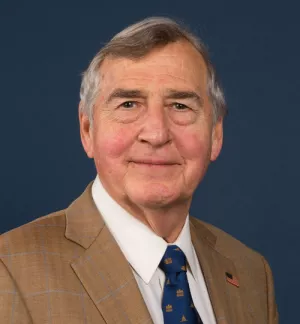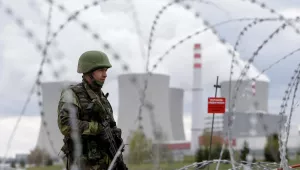As the price of bipartisan unanimity, the 9/11 Commission Report assiduously avoids apportioning blame to individuals, or naming names. But no one who has actually read the report can miss its searing indictment. The text of the report documents in devastating detail the failures of President Bush to defend Americans from the next terrorist attack.
While the report falls silent when it reaches the point of issuing an explicit indictment, the bill of particulars it presents stretches from to A to Z. According to the commissioners (five Republicans and five Democrats) the Bush administration's so-called "War on Terrorism" has failed:
To identify the enemy clearly. According to the commission, terrorism is a tactic; the real enemy is not terrorism, but Islamic extremists and their roots in an ideology that twists minds and inspires suicide bombings.
To develop a coherent strategy for fighting Islamic extremist terrorists. The commission says this necessitates deep cooperation with allies, a relentless battle for global hearts and minds, and a Cold War-style campaign to discredit and defeat a hostile ideology.
To build intelligence capabilities America lacks today -- the absence of which leaves us vulnerable to future terrorist attacks worse than 9/11. As the commission report explains, this requires a clear-sighted recognition of just how broken current intelligence agencies are, and immediate action to close this vulnerability gap.
In vivid example after example -- from the unbelievable keystone cops performance of the FAA, NORAD, and the national security communication system that forced Bush to use a cell phone to reach the White House, to INS's issuing visas to two of the airline hijackers six months to the day after they had crashed planes into the World Trade Center -- it forces the reader to confront a deeply troubling truth: The catastrophic failure of our government on 9/11 was no accident. Just the opposite, it was symptomatic of the systemic failure of the agencies and people charged with guarding the American homeland.
The Bush administration is currently attempting to duck blame for its failures by claiming that it is already doing what the commission recommends. Not only does this fly in the face of facts, but it challenges the competence of the commissioners. Were these ten outstanding Americans and their staff of a hundred professionals unaware of what the president has done -- and left undone? Obviously not, since the report commends the administration for the modest, specific steps it has taken in the right direction since 9/11.
But the central message of the commission is that such marginal reforms are poor palliatives, like taking an aspirin when radical surgery and reconstruction is required.
The commissioners call for nothing less than urgent, revolutionary change in the Bush administration's current marginalist approach to facing what the report calls "the overriding threat for this generation of Americans."
Bush has made a half-hearted endorsement of the two major organizational changes recommended by the commission: a National Intelligence Director, and a National Counterterrorism Center. As proposed by the President, however, the National Intelligence Director would lack two essential powers recommended by the commission: control of the purse strings and the ability to hire and fire key subordinates.
Bush's announcement throws this hot potato back into the lap of Congress, where, as his political advisers intended, it will be debated by multiple overlapping committees, most likely through the course of the campaign. The Bush administration's objective in accepting recommendations that it had earlier rejected decisively is transparent. Any alternative course of action would have provided additional fuel for critics already decrying its failure to decisively strengthen American defenses against future terrorist attacks; this way, Bush can appear above the fray while the commission's recommendations are considered in Congress.
To underline their call to action, the commissioners issued a stern warning. Absent "historic change" in current behavior, Americans will find themselves victims of further catastrophic terrorist attacks -- perhaps even soon. As former Republican Governor of Illinois Jim Thompson's put it, the president and Republican leaders of Congress ignore these recommendations at their peril: "If something bad happens while these recommendations are sitting there, the American people will fix political responsibility for failure -- and that responsibility may last for generations."
Graham Allison is director of the Belfer Center for Science and International Affairs at Harvard's Kennedy School of Government. His latest book is Nuclear Terrorism: The Ultimate Preventable Catastrophe.
Allison, Graham. “The 9/11 Unstated Indictment.” Seattle Post-Intelligencer, August 11, 2004




